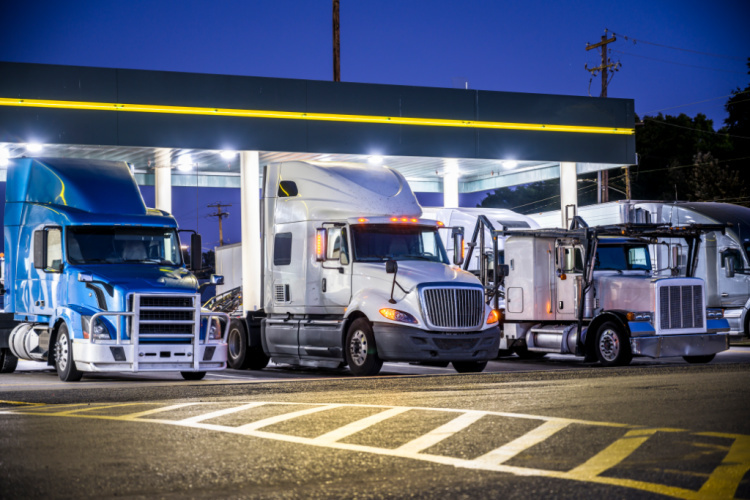

To a great extent, Canada still is law-abiding: When a court ordered the truck protesters to cease blaring their horns, the horn-blaring ceased. The truck disruptions have shocked Canadians because Canada is generally an extremely law-abiding place. If a crackdown goes bad in Canada, the negative consequences may not be confined to the country. The province of Ontario will reportedly introduce emergency legislation today. A not-so-big show may tempt them to resist and see what happens. A big show of force may persuade protesters to return home quietly. Trudeau has to act, but Canada may lack the means to act effectively and decisively enough to end the protests without harm to protesters or police. This crisis may be building to something truly dangerous. If Trudeau does not or cannot deliver that resolution, he will pay the price. It’s the authority of the national government that is being challenged-it is the national economy that is being disrupted-and it’s the head of the national government to whom Canadians will look for a resolution. They will not blame the Ontario provincial police, or the Royal Canadian Mounted Police, or the provincial premiers. Canadians will not blame the chief of the Ottawa police force if the blockades continue. This drama is unfolding on Ottawa streets, framed on television screens by the skyline of the Canadian federal Parliament. There’s a lot of room for Trudeau’s popularity to fall. There may not be a lot of room for the truckers’ popularity to rise. Voters everywhere expect governments to keep order, and if governments cannot or will not do the job, the people in charge of those governments will pay the political price.
#Canadian trucker strike 2022 trial
And although the most obnoxious acts of the protesters have provoked almost universal revulsion, it’s by no means clear that they will ultimately lose this trial of political strength. Justin Trudeau is Canada’s prime minister on the strength of 32.6 percent of the votes cast in the 2021 federal election. That’s not popularity, but it’s not crippling unpopularity either. The burden of the protests has fallen on Ottawa residents, whose streets have been paralyzed, and Canadian autoworkers, who face factory shutdowns because of cross-border disruptions.Ībout 32 percent of Canadians express broad sympathy with the protests. This is not a movement of “working class” protesters against remote, affluent elites. The spark for the protests was a requirement that truckers be vaccinated to cross the U.S.-Canada border.
#Canadian trucker strike 2022 drivers
About 90 percent of Canadian truck drivers are vaccinated comparatively few of those protesting are professional truck drivers. They have been condemned by the Canadian Trucking Alliance and Canada’s Teamsters Union. The blockades are very much a rogue movement. Yesterday, protesters attempted to block access to Ottawa’s airport. Another convoy is trying to impede the main road from Manitoba to Ontario. Obstructions have been reported at border crossings in Alberta and Manitoba as well. That’s the busiest of all the border crossings between the United States and Canada, crucial to moving auto parts. Trucks are obstructing the Ambassador Bridge between Windsor, Ontario, and Detroit.

The effects of the protests are becoming global too. Confederate flags and MAGA hats have been adopted into a global library of anti-establishment iconography. One of the most photographed movements of the protests has been a man on horseback hoisting a Trump 2024 flag in downtown Ottawa. The style and symbolism of this event, too, seem strangely nonlocal. are only some of the Republicans who have voiced support for the protesters. Florida Governor Ron DeSantis, Senator Ted Cruz of Texas, and presidential son Donald Trump Jr.

Much of the money donated in support of the Canadian protests has been raised internationally, especially in the United States. law enforcement is bracing for somebody to try something similar south of the border on Super Bowl Sunday, of all holy days. The truck-blockade movement that started in Canada is being mimicked in New Zealand, France, and Belgium. So it is now, with this month’s protests in Canada, in which truckers opposed to that country’s vaccination requirements have besieged the national capital and blockaded international crossings crucial to Canada’s economy. In the social-media age, all protests are potentially global. The European and Asian protesters mimicked the style and symbolism of the protests in the United States: taking a knee, pulling down statues. Within a week of the murder of George Floyd in Minneapolis, demonstrators were marching in the United Kingdom, Germany, France, Canada, Australia, and many other countries.


 0 kommentar(er)
0 kommentar(er)
